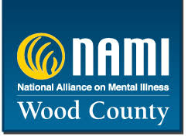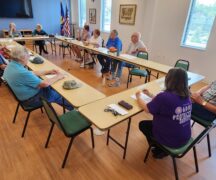From NATIONAL ALLIANCE FOR MENTAL HEALTH
The mass shootings in recent months and years have brought the subject of mental illness to the forefront. Though a dialogue about mental illness is useful and timely, it is unfortunate that in the wake of school shootings the public tends to associate mental illness with violence. Organizations like the National Alliance on Mental Illness want to point out that people with mental illness rarely become violent. Mental illness contributes to only 4 percent of all violence, and its role in gun violence is even lower (Swanson et al, “Mental Illness and Reduction of Gun Violence and Suicide: Bringing Epidemiologic Research to Policy,” Annals of Epidemiology 25 (2015) 366-376.) Mental illness is common; according to the National Institute of Mental Health, one in five Americans suffers from a mental illness at any given time. But violence by people with mental illness is not.
As a 2011 Harvard Mental Health Letter states: “Most individuals with psychiatric disorders are not violent. Although a subset of people with psychiatric disorders commits assault and violent crimes, finding have been inconsistent about how much mental illness contributes to this behavior and how much substance abuse and other factors do.”
People living with mental illnesses—depression and anxiety disorders as well as severe and chronic mental illnesses like schizophrenia or bipolar disorder—are our family, friends, and neighbors. With the proper treatment, they can live happy and productive lives and contribute to the community. While mental illnesses are not curable in the sense that contagious diseases can be cured, they can be managed the way diabetes can be. Treatment works, if people can get it. Sadly, shame and fear often keep people from the treatment that can change their lives. The stigma that still haunts mental illness makes affected individuals afraid to ask for help lest they be labeled “crazy.” Associating violence with mental illness only strengthens this stigma.
People living with mental illness are far more likely to become victims of crime than to commit crimes. And, according to the National Institute of Mental Health, the most common form of violence associated with mental illness is suicide. The tiny minority of mentally ill people who become violent have often been victims of childhood violence. Some have suffered domestic violence, childhood sexual abuse or trauma, and damage from alcohol and drugs. Untreated symptoms of psychosis such as delusions or paranoia may somewhat increase the potential for violence. Ironically, stigma and misunderstanding can keep the very people who need mental health care the most from getting it.
There’s no doubt that the mental health system in our nation needs improvement. We need more acute care and crisis beds in hospital, and to improve quality and outcomes for people in crisis or struggling with chronic conditions. Early intervention and screening in our communities and schools are helpful. Accurate information about mental illness is a form of prevention. Community support of mental health services is also crucial.
Families touched by mental illness need support and education. They are what the National Alliance on Mental Illness has provided since the 1970s. It has over 1,200 affiliates across the nation. Locally, NAMI Wood County offers classes, support groups, and advocacy for any individual or family struggling with mental illness. Classes like Family-to-Family and Peer-to-Peer educate participants about these biological brain disorders, their causes, and treatments. They also provide a supportive setting where those affected can share their struggles and successes—and ways of coping– without judgment. NAMI does not provide counseling; its programs complement the many mental health services available in our county.
Advocacy is another role NAMI plays. At both the state and national levels, the organization is currently pushing for more housing for those with serious mental illness, and to strengthen early identification and intervention programs. Early intervention can prevent more serious and costly mental health problems in adulthood, and safe, affordable housing prevents emergency room visits and homelessness. Both help people with mental illness maintain recovery.
NAMI receives support from the Wood County Alcohol, Drug Addiction and Mental Health Services Board. Citizen tax support of the WCADAMHS Board keeps its services available to all county residents regardless of their ability to pay. Both the ADAMHS Board and NAMI Wood County are fortunate to have the support that makes getting help possible for those who need it.
FOR MORE INFORMATION CONTACT: NAMI (National Alliance on Mental Illness) Wood County, 419-352-0626, info@namiwoodcounty.org, or namiwoodcounty.org




